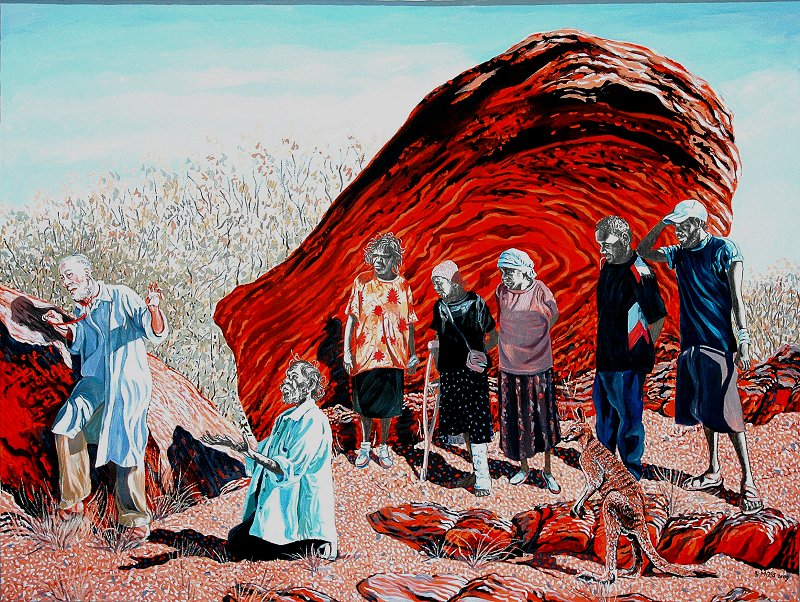Philip Nitschke believes in liberty. In particular he believes in the right of a human being to die when he wishes to. He does not believe a government should trump that right.
I think, in principle – somewhat unexpectedly – I agree with Nitschke. Thus far.
I have seen my patients suffering intolerable pain that will not end. Governments, lawmakers, do not sit in the bedrooms of the dying. They cannot know how deeply disqualified they are here.
Nitschke has been a gadfly irritating the conscience of this country for decades now. I have felt an instinctive distance from him, quite unreasoned, candidly prejudicial. It was not until he declared (in response to questioning in a recent interview) that his philosophic touchstones are Camus, Marcuse and Nietsche, that my finger suddenly touched on the point of prejudice: Nitschke – Nietsche. The latter is a name to which no Jew can be insensitive. Like Wagner, like Eliot, a name carries echoes. I read Nietsche and I hear echoes of “Man and Superman”. Vibrating behind, the euthanasing of the ‘untermentsch’ in the Third Reich.
Nitschke thinks the euthanasing of people who are “tired of life”, as proposed in the Netherlands, is reasonable. The so-called Groningen Protocol spells out criteria for infant euthanasia. The Belgian Senate approved by landslide proposals to extend euthanasia to children and to “people suffering dementia and other diseases of the brain.” The Royal Dutch Medical Association believes doctors can euthanase children because “a doctor’s primary duty of care is towards the patient.”
All this makes me shake my head. I know next to nothing of Nietsche, I have seen none of the context of the deliberations of my colleagues in the Royal Dutch Medical Association; I know nought of the Groningen Protocols (‘protocols’ – another word that echoes, echoes, echoes).
What do I know?
I know the problems of suffering are grievous.
I know that the ethical burdens are weighty.
I know just as severe pain cries out for relief, so societal dilemmas cry out for solution. People look to lawmakers to solve the problem by making a law. A law will be a relief, a slogan to comfort us.
I don’t believe that all problems can be solved by lawmakers.
I believe lawmakers have no right to legislate for one citizen to kill another.
I know there are some laws that some people will not carry out; and all too many others will.
I have no doubt that a society that authorises doctors to kill, kills trust in doctors.
Clearly what I know and what I think are insufficient. They are incoherent, not a policy, not a solution.
Human suffering cannot be outlawed.
Law is not the solution.
We are bound to pursue a solution.
But we might never find that solution.

Hi Howard
a couple of points
first:
“I have no doubt that a society that authorises doctors to kill, kills trust in doctors.”
Actually, I have never seen any evidence of this. The evidence that I have, and from speaking to those who work in the Netherlands is that they have a high level of trust in their general practitioners.(see http://www.ncbi.nlm.nih.gov/pubmed/16777257) In fact, I would tender an alternative rendering of your claim
“Only in a society in which there is a high level of (justified) trust in doctors, should a society authorise doctors to end patients’ lives”
That may mean that a policy that would work safely in some countries, would not be safe in others.
second:
the ‘Groningen protocol’ is somewhat of a dirty word, but having spoken at length with the paediatrician who wrote their guideline (a better word for it), its reputation is thoroughly undeserved. It was developed by a paediatrician who was distressed at what had happened for an infant with severe lethal epidermolysis bullosa. The child’s parents had been very distressed by the suffering of their newborn, and requested help to end the child’s life. At the time, there was no precedent for this, and their request was denied by the hospital. The infant went home and died some months later after a prolonged, painful and distressing illness. The Dr subsequently developed a guideline to set out conditions in which it might be ethical to actively end an infant’s life. Notwithstanding the claims that this policy would lead to inevitable abuse, and use in a wider range of cases, the evidence is that this ‘guideline’ has been used less and less in recent years – an inverse slippery slope. (see http://www.ncbi.nlm.nih.gov/pubmed/19805718)
LikeLike
Nietszche.
Appropriated, but misunderstood, by the Nazis, he sided with Brahms in the Wagner Wars.
LikeLike
Perhaps one part of the solution to this awful problem is better medical care where adequate pain management and psychiatric care is provided.
LikeLike